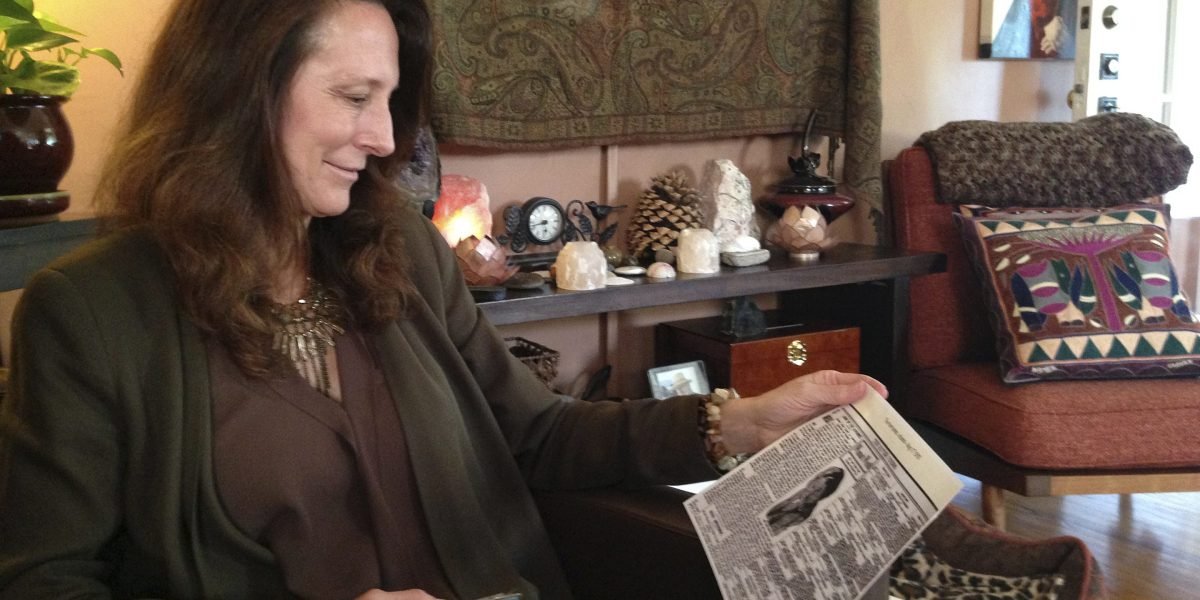A secret document kept in a drawer. The reason siblings go to war when they discover they’ve been “cut out” of one. Something that’s only for rich people.
No matter what you think a will is, 2 out of 3 American adults don’t have one. According to a 2023 survey by Caring.com, only 34% of U.S. adults have a will. While some people haven’t gotten around to making one, others don’t think they own enough to need one.
But here’s the truth: Wills are for everyone. And if you think about them with a few facts in hand, you just might discover that they’re one of the most magical, simple, and low-cost (free, even) documents you can make to protect your family and your wishes.
What is a will?
A will is a legal document that states what should happen to your assets when you die and names the person or people in charge of carrying out your wishes.
“No matter how many assets you have, you care what happens to them,” says Lauren Davies, an estate planning attorney with Connecticut-based firm Pullman & Comley. Whether you have $83 in your checking account or $8.3 million worth of real estate, that’s your wealth, and you should have a say in where it goes. “Drafting a will lets you have a voice about your assets and gives your family the peace of mind that comes from knowing they’re listening to that voice.”
For instance, a will can be as simple or complex as necessary to make your wishes known. If you want your sister to get everything, you get to say that. But you can also say who should care for your beloved pet and how much of your $83 or $8.3 million gets donated to your favorite animal shelter.
By making your wishes known—and in a legally-binding way—you’re also saving those you love the stress of having to figure it out. You’re also taking a decisive step that can protect your family and prevent unnecessary stress and costs that can accompany not having a will.
How wills work
A will is a fairly straightforward document that lays out four basic things: your executor, beneficiaries, wishes, and guardians for minor children.
Your executor
Sometimes known as a personal representative, your executor is the person who will make sure the instructions in your will get carried out following your death. They’re a combination CEO/CFO of your estate and will handle all the financial and administrative tasks necessary to fulfill your will’s instructions.
Your executor can be anyone you choose—a partner, spouse, friend, or family member—but make sure it’s someone you trust and are keen to take on the task.
Your beneficiaries
Your beneficiaries are the people or entities that “benefit” from your will, as they’ll receive your assets when you die.
Naming beneficiaries in your will can be as broad as “my children” or as specific as your second cousin Danisha. A beneficiary could also be a nonprofit organization or other legal entity like a trust that should receive a physical or financial asset from your estate.
Your wishes
Your will is your rodeo, so you get to direct who gets what and when. You can state that your engagement ring should go to your daughter or that your friend, Alan, should get custody of your Italian Greyhound.
From your home to what’s in your closet—and let’s be honest, in the attic or basement, too—your will lets you provide specific instructions for which beneficiary gets what. You can also state when a beneficiary should get the asset. For instance, you may want to leave your kids money but not let them have it until they turn a certain age.
Guardians of minor children
If you should die while your children are young, your will lets you name a guardian and alternate guardians to safeguard their interests until they turn 18.
If you’re married to or partnered with your child’s parent, you’ll likely want to name your spouse as guardian. But you and your partner or spouse will each want to draft your own will and together, specify a guardian for your children should you both pass away.
When naming a guardian, you can also state preferences for raising your children, including religion, schooling, and other values you may want the guardian to uphold. And like your executor, you don’t want to name a guardian before making sure they’re up to the responsibility.
Your will in action
After drafting your will, you’ll need to have it witnessed—usually by at least two people—to make it legally binding. You may also want to add a “self-proving affidavit,” in which witnesses swear to your mental capacity, which can ease probate since your mental state when creating the will is already proven.
After having your affidavit notarized, your will is good to go. You’ll likely want to share a copy with your executor and put the original in a safe place. After your death, your executor will file your will for probate—the court-supervised process for validating your will.
“During probate, a judge signs off on where your stuff ultimately goes,” says Anne Rhodes, an estate planning attorney with Wealth.com, an online estate planning service. The probate process and timeline can vary depending on where you live, and Rhodes says you’re at the mercy of how fast the courts in your area move. However, once the judge signs off on the instructions in the will, your executor is free to begin distributing your assets.
Types of wills
Wills come in five main types—the simple will and living will, which you’ve likely heard of, and the testamentary will, joint will, and holographic will, which you may not have.
- Simple will. When you think of a “last will and testament,” that’s a simple will. They’re typically best for simple estates and taking care of asset distribution and guardianship nominations for your children.
- Testamentary will. Also known as testamentary trusts, these wills are generally used by parents with young children who want to control when they inherit wealth. Assets are placed into a trust and then distributed to the children when certain conditions are met, like an age or life milestone like marriage.
- Joint will. As the name implies, a joint will is a single will for two people—typically a married couple. This type of will is highly restrictive and makes each spouse the sole beneficiary of the other’s estate. Even when one spouse dies, the surviving spouse can’t change the will.
- Living will. A living will is all about what happens while you’re still alive. This document outlines your wishes for medical care should you become incapacitated and often names someone to make medical decisions on your behalf if you cannot. It can also specify life-saving measures or treatments you don’t want.
- Holographic will. If you’ve seen a TV show where someone’s pulled a handwritten will out of a drawer, that’s a holographic will. This type of will isn’t notarized or witnessed, but is written and signed by the decedent. Holographic wills are only accepted as valid documents in certain states.
Those with simple, joint, or testamentary wills may also have a living will as part of their estate plan. A living will often accompanies other types of estate planning documents called advance directives, which can include medical and financial powers of attorney—all of which leave instructions for your medical care and financial affairs if you’re unable to make those decisions.
Wills vs. trusts
Wills and trusts are both estate planning documents that let you name who gets what and when, but how they each accomplish that goal is unique.
You can talk to an estate planning attorney to help decide whether a will or trust—often, a living trust—would be better for your state of residence and estate planning goals. Davies advises using an attorney who conducts estate planning as a regular part of their business and not just on the side.
Why you need a will
Now that you know what goes into a will, why should you take the time to make one? These documents truly are magical because they offer benefits that can be summed up with two words: care and control.
A will puts you in charge
If you die without a will, everything you own and possibly your children, will be subject to intestacy laws—a fancy legal word for “laws that say what happens if someone dies without a will.”
“Those laws were drafted by your state, probably decades ago, long before gay marriage and civil unions and the common family structures that will today’s world,” says Rhodes. So while having a will puts you in a position to protect your stuff and your family—and whoever makes up your family—not having one leaves you vulnerable to outdated laws written by people who may not share your values.
The bottom line? You likely don’t want a bunch of people you don’t know deciding what happens to your stuff and your family. Having a will can prevent that from happening.
A will gives your family peace of mind
Without a doubt, emotions run high when a loved one dies. It’s not an optimal time to make clear decisions about who gets what and when. “By answering questions about who gets what during life, your loved ones can have less stress when you’re gone,” says Davies.
Wills can also state end-of-life preferences, like burial, cremation, and funeral arrangements. Not forcing your family to figure out what you might have wanted can be one of the most loving gifts you ever give them.
A will protects your children
While no one wants to think about dying before their young children, doing so protects them in ways you may not have imagined.
“If you have kids, no one is ever going to step into your shoes perfectly should something happen to you,” says Rhodes. That’s why making guardianship nominations using a will is so important for parents. “While the court still needs to sign off, it’s so much easier during the court process if a parent left guardianship instructions.”
And if you’re worried about choosing the right guardian, Rhodes says it’s okay to choose the right guardian for right now. “You just need to get a will in place,” she says. “You can make revisions as your family and children grow.”
A will can save your family money
Figuring out who gets what and when after you die can be expensive if you die without a will—and your loved ones will bear the cost.
The more assets you have, the more complicated probate can become if you don’t have a will. Current and former spouses, children from different marriages, and those same two family members who argue about everything at Thanksgiving dinner each year—if they all want a piece of what you left behind, that can involve attorneys and drawn-out legal battles. When you take the time to state who gets what and when in your will, your wishes are clear, and there’s less to argue about when you’re gone.
Davies says that even if you don’t want to tell your family precisely what’s in your will, it can help to tell them the goals that you want your will to accomplish. “We occasionally do what I call a ‘dear family’ letter that people can leave for family members after their death,” Davies says. “These letters just explain to someone named in your will why you did what you did, especially if it’s not an obvious decision.”
What does a will cost?
The cost of a will can range from nearly free to thousands of dollars. Typically, the more complex the will, the higher the costs.
For example, a basic state-specific will through the online estate planning site Freewill is completely free—you’ll just bear the costs of having it notarized. Using an estate attorney can cost more—between $300 and $1,200 for a basic will, according to Nolo. The route you choose should be one that makes you confident that you’re getting a will that’s valid in your state and covers the issues you need covered.
If you’re unsure what you need or where to start with your will, that could be a good time to meet with an estate planning attorney, says Davies.
“I joke that I’m no one’s favorite meeting,” Davies says. “But what I like to do is make people feel at ease. All you have to do is take the first steps to open up the conversation, and I’ll walk you through the rest of it.”
Frequently asked questions
What happens to a decedent’s assets when there’s no will?
If you die without a will, what happens to your assets depends on your marital status and state laws. In many states, your assets pass directly to the spouse when you die. If you’re unmarried, however, a probate court will use the state’s intestacy laws to decide who has legal claim to your assets.
What is a pour-over will?
A pour-over will is a special type of will that ensures that any assets remaining in your estate when you die will “pour over” into your living trust. Like other types of wills, a pour-over will must still go through probate.
Do I really need a will if I own nothing?
Everyone has something of value and deserves a say in what happens to those items of emotional or financial value. With a will, you get to say what happens to those items. Otherwise, the state’s probate court will decide for you.





